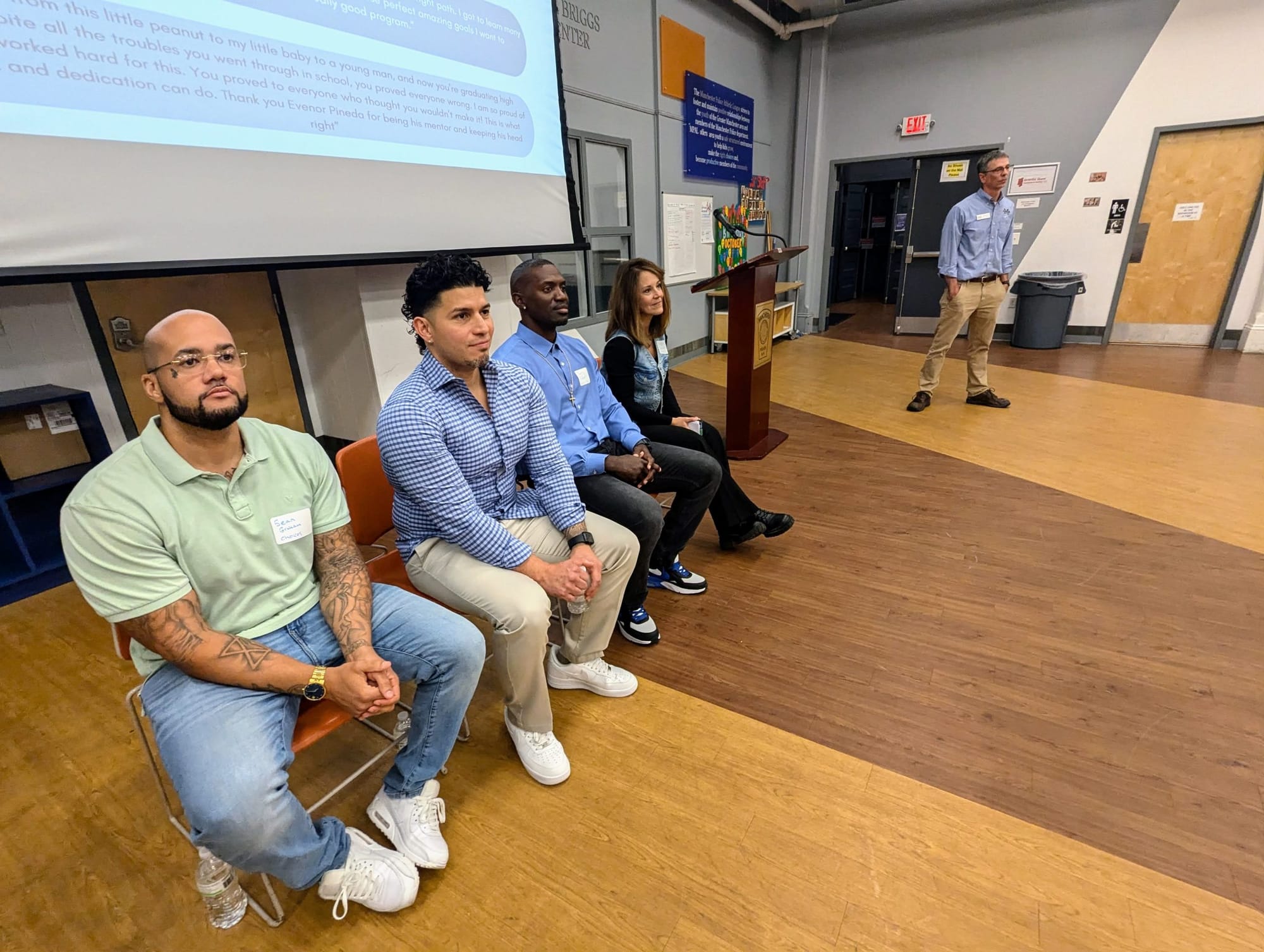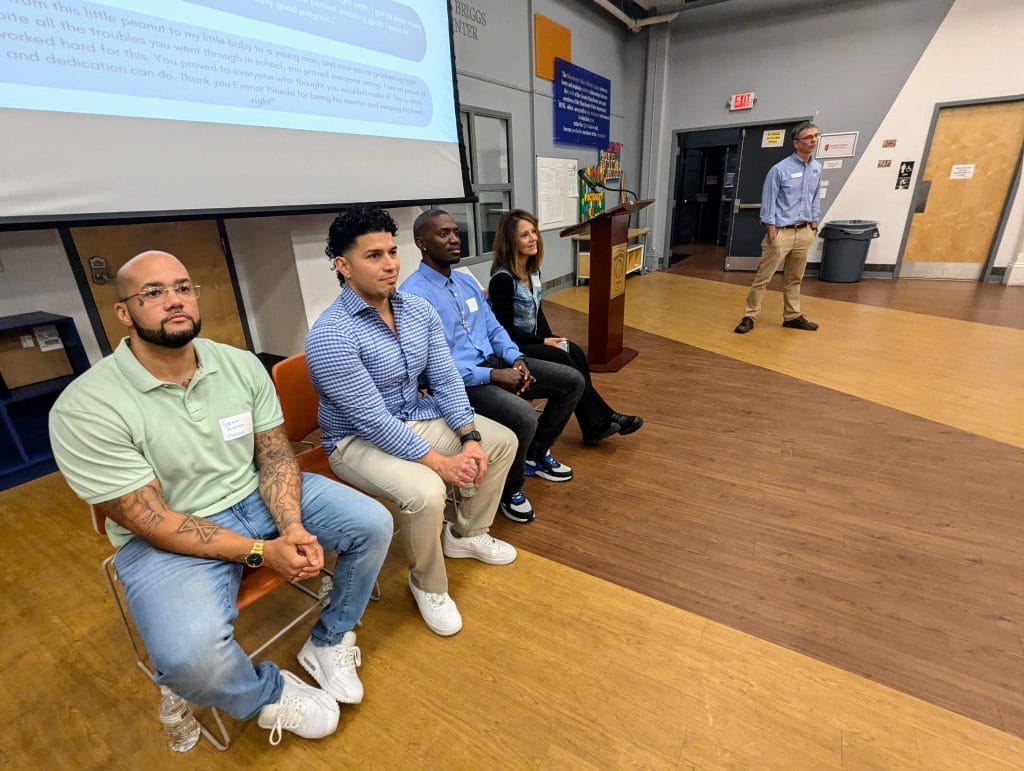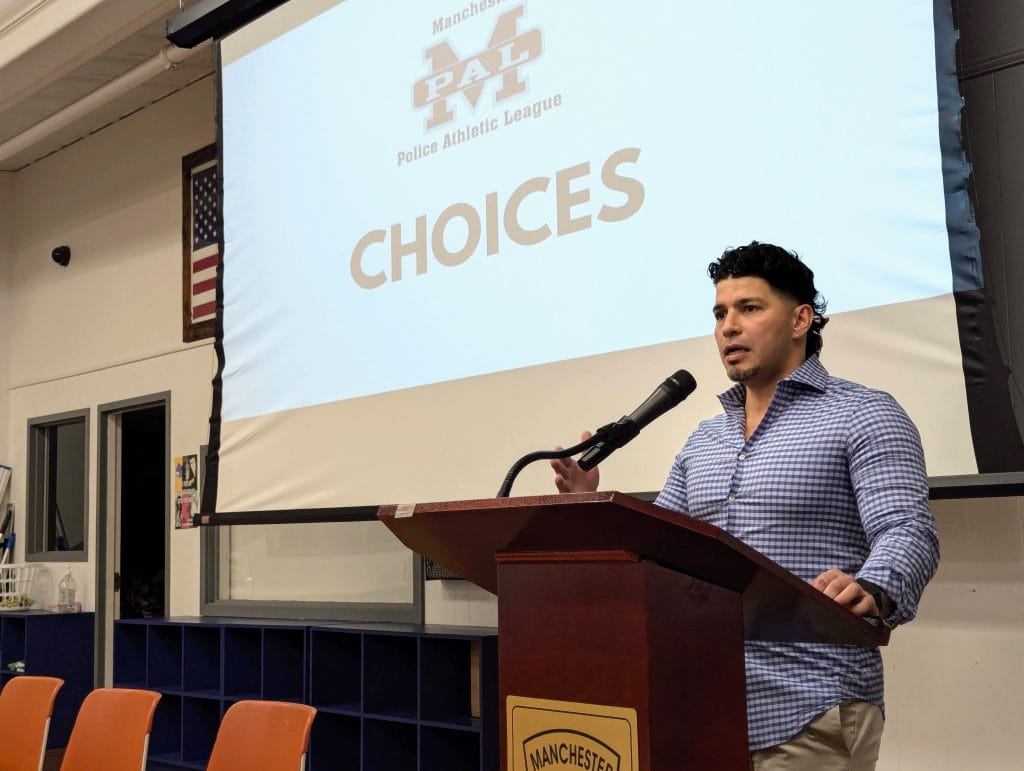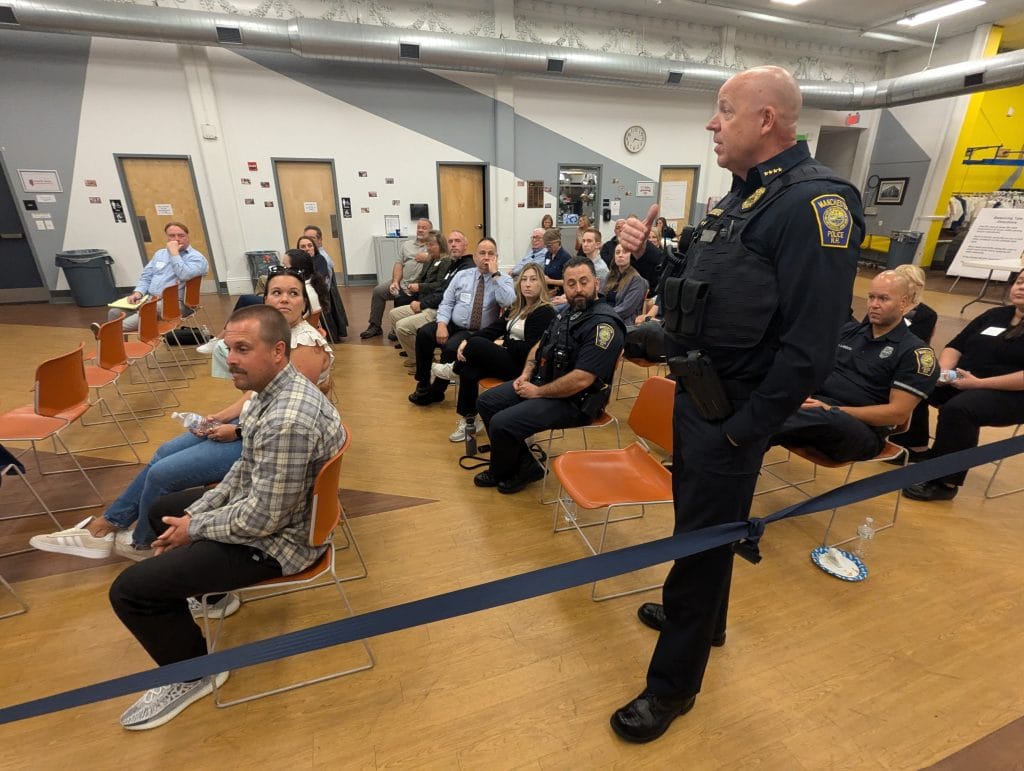Proving ground: CHOICES pilot program steers at-risk youth away from crime through mentorship
he Manchester Police Department is backing an initiative called CHOICES (Creating Hope Opportunities Inspiring Change Excellence & Success) that pairs formerly incarcerated adults with at-risk youth to help steer them away from crime and toward more positive life paths.


MANCHESTER, NH – The Manchester Police Department is backing an initiative called CHOICES (Creating Hope Opportunities Inspiring Change Excellence & Success) that pairs formerly incarcerated adults with at-risk youth to help steer them away from crime and toward more positive life paths.
The program, which began as a pilot in 2023, grew out of an existing group called Futures that brings speakers into juvenile justice settings.
Jayna Stevens, who serves as the Futures Coordinator, said that program was launched about 4 1/2 years ago in response to gang-related videos being posted by youth who were familiar to the MPAL staff.
“While I believe all programs at MPAL mentor and teach life skills, the Futures group was designed to specifically address justice and gang-involved youth and intended to teach skills in an interactive and unique way,” says Stevens.
CHOICES expands on that model by offering one-on-one mentoring, mediation, education and community connections to young people.
Stevens runs the CHOICES program along with co-facilitator and mentor Evenor Pineda, who was introduced to Stevens by his parole officer, Bill Duffy.
“At the time I invited Evenor to speak to the Futures group he was a full-time restaurant meat salesman. I don’t claim to know much, but I do know a good thing when it sits in front of me, so I invited him back a few times because I was literally witnessing magic,” says Stevens. “I was seeing how easily the kids gravitated toward him. The kids were drawn to him, almost immediately, and trusted him and started building that relationship. I knew he didn’t belong in meat sales and so here we are, four and a half years later, co-facilitating the Futures group.”
Before his formal presentation to community members gathered at MPAL on Oct. 3 to learn more about the program, Pineda led them in an “icebreaker” activity – one that requires teamwork and communication – to demonstrate how he gets the youth participants connected. [See video below.]
Above: CHOICES typical icebreaker demonstration by Evenor Pineda at MPAL. Video/Carol Robidoux
“What we’re really doing is presenting these young people with choices and we recognize that they are young adults,” said Pineda. Program mentors can relate to the youth in ways other adults often can’t – because they also once were young Black or Brown teenagers navigating the pressures of growing up as minorities in a predominantly white community.
Pineda was 24 when he was sentenced to serve 18 years in prison for the April 2005 stabbing death of a fellow gang member in Nashua. During his incarceration Pineda took parenting classes and found ways to connect with his two kids, including recording himself reading their favorite books on CDs that they listened to over and over again as bedtime stories.
He served 15 of his 18-year sentence and was released on parole in 2020. His transformation over the course of his incarceration has brought him full circle to a place where he is a natural, mentoring young kids at risk of going down the same dark path as he did.
“These young people do not have positive role models in their lives. They don’t have those people that can really speak to them from shared experiences,” he said.
The program serves youth ages 11-18, with most participants in the 14-16 range. According to data presented by Pineda, more than half of participants are either gang members or gang-affiliated. About two-thirds report substance abuse issues.
Choices aims to intervene early with these high-risk youth. The program uses tools like adverse childhood experiences (ACEs) screening to identify kids who may be more likely to end up on a “rough road,” as Pineda put it.
Mentors then work to build trust and provide guidance, drawing on their own experiences to show youth the potential consequences of criminal behavior as well as the opportunities that can open up by making better choices.
“We can talk at length about that prison experience,” Pineda said. “But also on the flip side, we can talk about if you make the right choices, what that looks like.”
The program takes a non-traditional approach to education, focusing on debunking myths about gang and drug culture. Mentors also help mediate conflicts youth may be having with parents, teachers or peers.
Community partnerships are a key component. CHOICES works with local schools, colleges, nonprofits and other youth-serving organizations to connect participants with resources and opportunities.
For example, when one youth expressed interest in becoming a lawyer, the program arranged for him to sit in on a criminal justice class at Southern New Hampshire University.

Growing the program beyond Manchester
A main objective of the pilot is to prove that it can really make a difference in deterring young people from gang activity. Stevens says when she and Pineda were both working with the Futures group in a volunteer capacity, that’s when the state-led Juvenile Probation Transformation program rolled out. That program, mandated by the state to address and reduce the pipeline to prison that often goes along with juvenile probation, was refocusing on diversion programs.
And while that is a good thing, it also initially doubled the number of youth coming into the Futures program, Stevens said.
“And now it’s almost tripled our diversion numbers,” says Stevens. “And also increased the intensity of the youth presenting at diversion. These youth were referred to Futures and blowing up our numbers and clearly demonstrating that the weekly group was not going to be enough. That’s when we recruited Sean (Graham) and then Tony (Hebert) to volunteer as group facilitators.”
From there, the concept of CHOICES was developed, a way to provide mentors, mediation, advocacy and education while building deeper connections with youth.

Funding is crucial to keep the program going
“We went to MPAL and pitched the idea. I promised to do the fundraising and help supervise the program,” Stevens says. “I am biased, but MPAL is amazing, and they said yes. So we went on a ‘campaign trail’ to try and get funding to hire Evenor.”
Chief Allen Aldenberg stepped up, says Stevens, and secured ARPA money which provided the initial $100,000 to support hiring Pineda.
“That allowed us to rise and meet that community where they were, all while still trying to figure all this out, you know, fly the plane as we were building it,” Stevens says.
“If we were to get what we think is ideal staffing for Manchester, the cost would be a little over $300,000. This is scaleable depending on number of mentors. However, if we are not at full staff, burn-out is a real concern,” Stevens said. “The mentor role is an intense position.”
But there is no doubt in Stevens’ mind that this program can turn things around and reverse the trend in juvenile gang involvement – not just in Manchester, but in communities all around the state.
Or as Pineda says, “We are trying to interrupt the pipeline from high school to prison and build the path from prison to the community.”
While similar “credible messenger” programs exist in other states, CHOICES aims to tailor its approach to New Hampshire’s needs. The program is working with the Department of Corrections on vetting mentors and plans to add a clinical component to support mentors’ mental health.
Stevens says they are working hard to identify more funding.
“Right now the only confirmed money we have will fund Evenor for another year. This second year of Evenor is provided by City CIP funds and a Bean Foundation grant. If nothing else were to fall into place, Choices would have to be done around this time next year,” says Stevens.” In my book, that is not an option.”
Early feedback has been positive. Bill Krantz, former principal at McLaughlin Middle School, praised a Q&A panel the program held with students.
“The panel was outstanding,” Krantz wrote. “The students were engaged and asked great questions. Your team did an amazing job connecting with our students.”
One parent of a participant said the program has been “life-changing” for their child.
For Pineda and the other mentors, seeing youth embrace the program is deeply rewarding. He described one teen who walked across town in all weather to attend meetings, even after his required participation ended.
“That’s what keeps me going,” Pineda said. “A lot of days I feel beaten down … it’s two steps forward, one step back. But to know that he knows that here, he has a safe place to come, he has folks that really care about him, that’s what it’s all about.”
To learn more about CHOICES or to find out how you can help fund the program, contact MPAL Executive Director John Rainville jrainville@manchesterpoliceathleticleague.org or call 603-626-0211.
Below: A powerpoint presentation that includes more information and statistics for CHOICES program.





